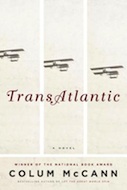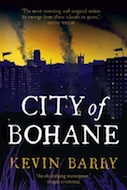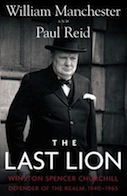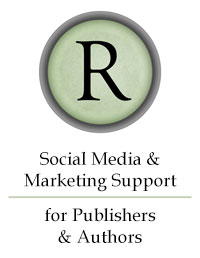[The intent of this post is to step back and consider the industry-wide implications of $8.99 bestsellers. I’m making multiple assumptions where I do not have all the info, so I invite corrections, counter arguments and real numbers before anyone jumps off any cliffs.]
The shoe is on the other foot this morning, with indie booksellers contemplating deserting publishers for cheaper $8.99 books at the mass merchants. Amazon.com, Walmart.com and Target.com are waging a price war over the top dozen-or-so projected bestsellers of the holiday season. To do so they are all willing to make a loss of $5-$6 on each book – which is staggering, because last time I checked market share wasn’t legal tender. Naturally, indie bookstore buyers have concluded that if you can purchase books you know your customers will want, at a lower price than directly from the publisher, and force a competitor to take a loss on each copy, why the hell wouldn’t you?
This is my attempt to make a case not to desert the publishers. [Full disclosure: I work for a small publisher and part-time for an indie bookseller, hence the need to look at the situation from both sides.]
The reason to support publishers by buying directly is because of all the services they deliver which indie bookstores value: selection, curation, marketing, creating demand? (You know, many of the same things we tell customers they’re supporting when they shop indie…) The irony of this situation is not lost on anyone.
The question is, who loses if indie bookstores cancel and reorder at 8.99 from the gamblers who are prepared to take a loss of almost $5-$6 on each copy? Publishers theoretically ship the same number of books, just through different channels. Those publishers are making the same profit whether they ship through Wal-Mart or directly, as giving one channel a larger discount than another would be illegal, right? [Please correct me if I’m wrong, but I was under the impression that the ABA took publishers to court over this exact issue several years ago.]
Our sales reps lose out, esp. if their income is commission based. Many stores depend on good reps to cut through the clutter of titles the large houses publish and showcase the books that will appeal the most to customers in our individual regions and cities. However, so many reps have been let go and the remaining rep’s territories have become so large that many small bookstores don’t see reps often, if at all, so I don’t expect the argument that deserting publishers will hurt your sales reps to hold much water with those stores.
Distributors lose out; leaving them with a large amount of money tied up in product that will move much more slowly than anticipated. This tied-up money could have gone to support smaller, more indie-friendly titles that don’t have to be discounted to sell – the bread ‘n’ butter of indie bookstores. We’re going into the busiest time of the year, the time when distributors are the only way to get hot books in time for the holidays. The last thing indie stores need is for those distributors to be unable to stock up on the mid-list and regional hits that are too small to be on the mass merchant’s radar, but which indie booksellers have carefully cultivated a demand for in their cities.
Distributors provide a valuable service to indies: centralizing the supply of small- and mid-size-press books and saving indies the expenses of time and money to place multiple small orders, often incurring individual shipping costs, and making the returning of any unsold books so much more cost-effective. $8.99 books threaten distributors immediately, and with them would go the ability of many indies to cost-effectively source the small, quirky, off-beat titles that we boast about providing to the reading public.
The $8.99 price tag may just be on a handful of the projected bestselling titles of the year, but the economics of publishing seem to suggest that the results of removing this much value from the industry could negatively affect the industry at all levels.
On the other hand, perhaps there’s an argument to be made that the extra margin indies sourcing their bestsellers from walmart.com would receive will revitalize their stores, or that the money readers save buying their books for $8.99 will spur additional book purchases, growing the industry? I can’t fit the pieces together to make either sound convincing, but I hope others can.
The crazy thing is, after writing all that, I can’t say that on balance it would be a bad idea to cancel your publisher order and get the books $6 cheaper at Target.com or not. Margins are so low on books that those extra dollars on the top titles could keep some stores in business. It’s difficult to take the long view when you’re worried about meeting payroll each month.
Notes
Bob Miller at Harper Studio has a great post on the economics of a price war and considering the long-term industry impact of $10.00 books becoming the new norm.







13 comments
Comments feed for this article
October 20, 2009 at 10:39 pm
Ann Kingman
Here’s another idea, though admittedly not fully formed.
Buy a few copies of the $8.99 books. Then offer them to your customers at $8.99, as a service. And use it as an opportunity to have a conversation with them and the community at large — about the value of bookstores and the value of books. The value of art. And then let them make the informed choice.
October 20, 2009 at 10:43 pm
Rich
That’s a darn good point, Ann.
It keeps customers happy, and give the booksellers a chance to educate.
October 21, 2009 at 10:11 am
tom holbrook
Here’s my concern, and a reason I probably wont do what Ann suggests at my store:
Do we want the public to get used to $10 books? When they walk into my store and all the books I WANT them to buy are $25 to $35, and the mainstream stuff is $10, it’s harder for them to make that choice and take a chance on something new, unusual, and unique. Is there any model out there that makes $10 books sustainable in the long term for anybody?
Here’s a question for the publishers: Will they be printing extra copies to fulfill the buying frenzy the online folks are promoting? Will these be additional sales, or will they be stealing sales from the brick and mortar stores? If they are reducing sales at the physical stores, than it will be the publishers who have to take all those books back. That can’t be good for them.
I do agree it’s one more chance to talk with customers about the value of supporting their local independent, but I’d be happier if it weren’t in the fourth quarter!!
October 21, 2009 at 11:11 am
Teresa Rolfe Kravtin
I agree with Ann. I must add, however, and I will put this as diplomatically as possible, when you ask the indies to support the publishers by not canceling their orders, why should they? I have heard more than one publisher cite the ever diminishing share of the market that the independent bookstores occupy, and how little that consideration plays on their business decisions. In this price war saga, the situation is turning around to hit them where it hurts. I am a commissioned rep, and my success depends ENTIRELY upon the success of independent booksellers. I fight the fight for them continuously. To the degree that publishers have exacerbated this situation among the largest accounts to whom they sell books, is an economic lesson they must obviously learn the hard way.
I appreciate the way in which you detail how this circumstance has far-reaching effects, other than just an effort to gain customers by the mass merchants. Not many realize the extent that damage such as this inflicts upon others in the industry.
October 21, 2009 at 2:55 pm
Rich
Part of what really annoys me is that this isn’t even a good faith attempt to win new customers. They’ll “win” lots of one-time purchasers (each of which will cost them a bundle, but these purchases are very unlikely to attract additional purchases. Only Sears is making an attempt to incent add-on/future purchases. This is purely a tactic to grow market share, which suggests AMZN, Walmart & Target are looking at dire Q4 comps and betting the farm on having market share growth as a silver lining to show to investors.
And Tom, you’re on the money regarding training customers to expect books for next to nothing. That helps nobody.
October 21, 2009 at 3:45 pm
John Mesjak
Good points all, so far. The thing that strikes me about this “price war” situation is that it’s the publishing industry equivalent of Balloon Boy. We’re getting all heated up over something that is really just 10 titles, more or less. And for many many indie bookstores, as has been mentioned elsewhere, most of those titles are not books they were going to be ordering OR selling in case quantities.
This situation won’t change publishing. Publishers aren’t going to start dropping their announced retail prices on hardcovers that low.
So who benefits?
Readers = Only to the extent that they buy these specific books. The next time they go to Target or Amazon or Walmart or Sears, books are back to the usual prices. Also, as lovers of books and authors, we ought to be insulted, just a little bit. “Do I LOOK like that’s how I make my buying decisions about what books I’m going to read?”
Big Box Retailers = Doesn’t seem like it, unless they get massive add-on sales. Customers who were going to buy those books already will buy them someplace, probably at the lowest price they can find. But even with books priced at $9.00, these retailers are unlikely to win over the non-book buying population and convert them to new book buyers. Online shoppers are already trained to seek the lowest point on the landscape, and consider that iPhone app store customers complain when apps cost more than $.99 or $1.99. Customer X at Walmart.com who didn’t go to the site explicitly for that book’s low price seems unlikely to be a convert to book buying. So, at best, it’s a zero-sum game for this (admittedly large by bookselling standards, but tiny, really) part of the book-buying customer base. Further, unless there’s some shady business going on, each retailer in this price war loses money on every sale.
Indie Booksellers = Beyond Rich’s points and Teresa’s points (not to mention all the other indie booksellers who’ve spoken out about this), I think the simplest way to benefit from this situation is to turn the whole thing into a very direct set of talking points about why bargain basement pricing is not the best practices model for the whole industry and all the other benefits that indie bookstores bring to the table.
Publishers = I think they’re quietly plotzing about the mixed benefits of this situation. As I said before, I don’t think this grows the audience for any of the authors in a substantial way. BUT they do get a lot of talk and attention on these authors and how they’re at the top of the heap. BUT at least they still get to invoice at normal discounts. They didn’t even have to try a remainder-in-place kind of deal to get the prices down. BUT it does tend to distract from their efforts to market all the other books coming out this fall. It just sucked the air out of the room, didn’t it?
October 21, 2009 at 5:10 pm
Bailey Walsh
I concur with Mr Mesjak. This is a great post, with excellent comments from many experienced folks in the book industry. My take on the primary ground level issue, however, is that indies should simply do what helps them now. In this situation, they are being tossed about on a sea of larger forces (online big box retailers) beyond the shores of bookselling. As has been mentioned here & elsewhere, indies are not making their money or reputations on these books. If they can gain some margin by sourcing these new books to the online retailers selling them at $9, why shouldn’t they do it? Buy them at $9 & sell them for whatever they intended to discount them for, or maybe 5-10% more. And they should put that extra cash to good use in their store – more staff hours, more selective inventory, free coffee, etc. The single tangible negative for the store is the lost billing from the publisher, which will diminish the stores co-op pool. But that is more than made up in the increased margin. The immediate injuries belong primarily to the online retailers losing money, & more importantly, with respect to the fabric of the industry, reps like Theresa & John who would lose commissions.
I appreciate the opportunity to educate customers, but this is largely “inside baseball” stuff for most of them, even ones that shop indies. And even industry insiders do not know what the fallout will be if the $10 new book takes hold (I agree that this is not a good trend & the solutions fall largely with actions the publishers can take). I think a lot of the general positive “buy local” campaigns that are being made by indies & Indiebound are great & they should continue. But trying to reinforce that message in this case might be confusing & a losing battle at that. We’re already asking a lot of customers when we say they need to look beyond the best price they can get for something – books, food, clothing, etc – to see the bigger picture of where their money goes. Are they going to understand why an indie bookseller had to buy their stock at Walmart, Target, or Amazon to compete? And will they appreciate that their money is essentially going to those retailers via the indie?
We all know these actions by the big retailers are not sustainable, as is the $10 e-book. So indie booksellers need to do what they have to do to survive until this is sorted out. One battle at a time.
Bailey Walsh
Sales Representative
University of Chicago Press
October 22, 2009 at 8:25 pm
tom holbrook
I respect your opinion, Bailey, but I think it’s not true that these actions by big retailers are not sustainable. Neither of them make their money on books, and both of them could lose a few hundred grand a quarter on this and not have to blink. And where do you go after $9? What if Amazon’s next step is to make it 100 titles?
I must stop obsessing over this.
October 23, 2009 at 2:59 pm
The Week That Was | Booksquare
[…] Prices for a few books have dropped below nine dollars (yet, the new Stephen King ebook, discussed further below, remains priced at $35.00. For an ebook.). That hurts independent publishers, though the smart ones are also seeing opportunity. Why buy from traditional distributors when a trip to Wal-Mart will offer more margin. Poke ‘em in the eye! (Contrary analysis here, worth reading and deep thought) […]
October 24, 2009 at 7:35 pm
bowerbird
i guess the publishers didn’t know that
wal-mart was gonna offer big discounts
when they agreed to have it sell books.
-bowerbird
October 25, 2009 at 12:25 am
Bailey Walsh
I see your point Tom. I agree that I do not know the limits to which these retailers can take this. I probably have my bookish blinders on too often. Maybe this is sustainable. And the extreme discounting is likely to expand before it disappears. And that can lead to a lot of damage to independent booksellers & publishers before it ends, if ever. All of us in the publishing & bookselling community need to be “obsessing” about this. The health of independent stores concerns us all, as it not only determines the survival of our livlihoods (or should I say vocations), but also the quality & diversity of the minds in our communities.
My apologies to you, Teresa, for misspelling your name in the previous post.
December 1, 2009 at 11:08 pm
The Week That Was | Agência de Notícias da Livraria 30PorCento (Blog)
[…] Prices for a few books have dropped below nine dollars (yet, the new Stephen King ebook, discussed further below, remains priced at $35.00. For an ebook.). That hurts independent publishers, though the smart ones are also seeing opportunity. Why buy from traditional distributors when a trip to Wal-Mart will offer more margin. Poke ‘em in the eye! (Contrary analysis here, worth reading and deep thought) […]
January 7, 2010 at 2:21 pm
Edward G. Talbot
As you noted, I don’t think the sales reps being hurt is going to be a big concern. The distributor issue is of more concern, although it seems unlikely that the numbers here will be enough to impact them significantly. I suppose it could get to that point, but I tend to doubt it. Now, if the distributors are getting cut out of the deals with the big box stores, THAT could hurt them, but getting cut out of the sales of a few top titles to smaller bookstores will not.
Although I understand that indies are going to have to decide what to do in this specific case, I don’t see the issue of whether or not to buy from them as a long-term problem. The real problem is the ongoing one, that if Walmart is selling the book for $10, it’s going to reduce the chance of someone buying it at a bookstore.
Which gets into the far more complicated issues relating to how all parts of the book industry will address the myriad of challenges facing it.